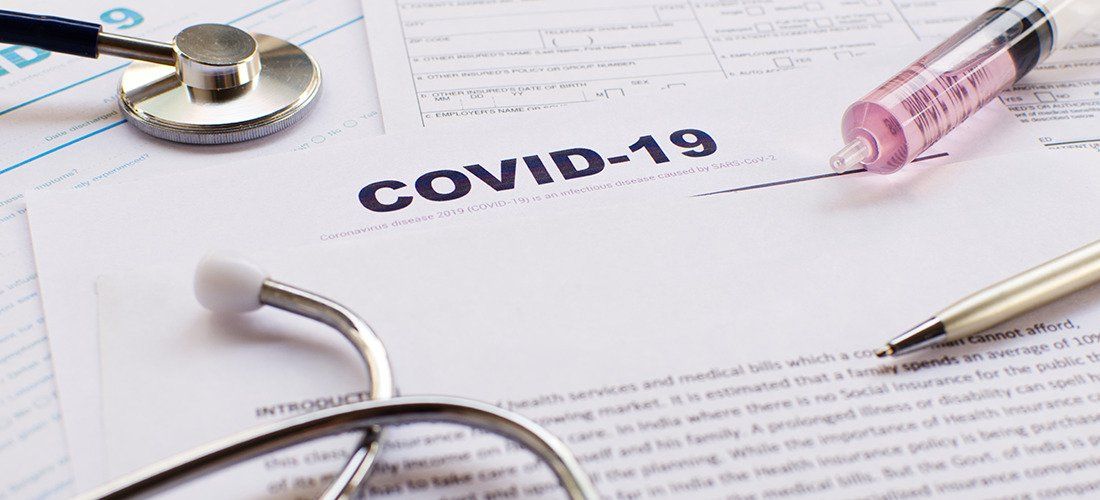The security that comes from having a plan in place can help mitigate the anxiety experienced during a crisis. It is increasingly important to make sure you have planning documents in place, including powers of attorney, that will give you that peace of mind. If you should become temporarily or permanently incapacitated, for reasons related to COVID-19 or for any other reason, it will be important that you've named someone to act on your behalf.
In a 2020 survey, 68% of people said that they do not have basic estate planning documents, such as a will, trust or power of attorney, in place. Of those people who indicated that they do not have an estate plan, the most commonly cited reason for not doing so was “I haven't gotten around to it.”
Although most people are aware of the need for estate planning documents, actually taking action to complete a plan is frequently trigged by a significant life event, such as:
- Marriage/partnership
- Divorce/separation
- Birth of a child/grandchild
- Death of a loved one
- Serious illness
- Increase in assets (such as an inheritance)
It's very common to think about estate planning in terms of planning for what happens after you pass away. However, an equally critical component of estate planning involves planning for who will make financial and medical decisions for you if you become unable to make such decisions for yourself during your lifetime.
A durable general power of attorney (“POA”) helps you answer questions such as:
- What happens to your legal, property, business and financial affairs if you were to become incapacitated?
- Who will pay your bills, run your business and manage your property until you recover?
How does a power of attorney work?
In a POA, you name one or more people (referred to as your “agent” or your “attorney-in-fact”) to handle your financial, legal and other affairs. This does not include health care decisions, which are covered by a different document called a medical directive or medical power of attorney.
What powers should your agent have?
A POA is customizable so that you have control over which types of authority you grant to your agent. Some examples of standard powers are shown below.
| Sample Powers in General Durable Power of Attorney | |
|---|---|
| Power | Examples |
| Banking | Opening and closing bank accounts, writing checks, making deposits, and accessing safe deposit boxes |
| Taxes | Filing tax returns on your behalf, hiring a CPA |
| Property | Buying and selling real estate, paying property takes, autorizing and paying for maintenance and repairs, making investment decisions, managing your investment portfolio |
| Legal | Defending and prosecuting lawsuits on your behalf, hiring an attorney to represent you, creating or revising estate planning documents, gifting property |
| Education | Accessing education and financial aid records at colleges and universities (this is especially important for young adults who are college students) |
| Digital | Accessing social media, online document storage, or other online accounts |
You can customize these powers for your situation. Talk with your estate planning attorney about any specific powers that you do or don't want your agent to have.
Whom should you appoint as your agent?
Because the person you appoint as your agent in your POA will have broad authority, you should give careful consideration to this decision. The person you name should be extremely trustworthy, capable of making good decisions on your behalf and in your best interests, and able to understand when to seek professional assistance (such as by hiring an attorney, CPA, or other advisor).
One important planning decision that is sometimes overlooked is the appointment of backup agents in a POA. If, for any reason, the person you name as your primary agent becomes unavailable or unwilling to serve in that capacity (for example, due to death or disability), then the backup agents will be able to immediately step in to handle your affairs. Many people appoint their spouse/partner as their primary agent, and one or two other trusted individuals as backups in case both spouses become incapacitated at the same time.
Communication is a key ingredient in selecting your primary and backup agents in your POA. Have a conversation with the people you decide to name, and make sure they understand what it is they're being asked to do and how you'd like them to carry out these duties, should the need arise. Make sure they have a list of any accounts, insurance policies, professional advisors, or other information that will help them act on your behalf should the need arise. Also make sure they will have access to the passwords for any online accounts they will need to access.
When does your agent's authority to act on your behalf begin?
There are two choices when creating a POA, and you should consult with your estate planning attorney as to which option is best for you. A POA can either become effective immediately upon signing, or it can become effective only when you become incapacitated.
When does your agent's authority to act on your behalf begin?
There are two choices when creating a POA, and you should consult with your estate planning attorney as to which option is best for you. A POA can either become effective immediately upon signing, or it can become effective only when you become incapacitated.
When does your agent's authority to act on your behalf end?
The authority granted in a POA ends (1) when you revoke that power in writing, (2) at a time indicated in the POA document itself (for example, if your POA specifies that your agent only has authority when you are declared to be incapacitated, then their authority will expire once you have recovered), or (3) when you pass away, at which point the executor of your estate will take over.
Do young adults need a power of attorney?
Everyone over the age of 18 should have a POA. While people generally understand the usefulness of encouraging their older parents to create POAs and other estate planning documents, many overlook doing the same planning for their young adult children. A POA can be especially important for a young adults in college, in order to give a parent or guardian access to their educational and financial aid records.
How does a power of attorney help keep older relatives safe?

If you have an older parent, or other relative, who is quarantined at home, it is important to know who has access to them and who is managing their affairs. For an older person, having a POA during this time of social distancing can help prevent financial abuse and undue influence. If you are the agent named in an older relative's POA, now is the time for hypervigilance about their finances. If authorized, you can request reports, accountings or status updates from your loved one's financial institutions or professional advisors.
What happens if you don't have a power of attorney?
Without a POA in place, the only legal method for someone to obtain authority to act on your behalf is to go to court and ask to be appointed as your guardian. A guardianship proceeding can be costly and time consuming during a period of time when your loved ones may need to make decisions quickly in order to preserve your assets, pay your bills or preserve your legal rights. Stay-at-home orders, travel restrictions and court closures in some jurisdictions may add to the logistical challenges of scheduling a guardianship hearing during the COVID-19 crisis, potentially resulting in long delays.
Additionally, because anyone can file a petition to be appointed guardian, you have no control over who a court will appoint to fill that role. A POA is the most effective way to maintain control over who will handle your affairs.



